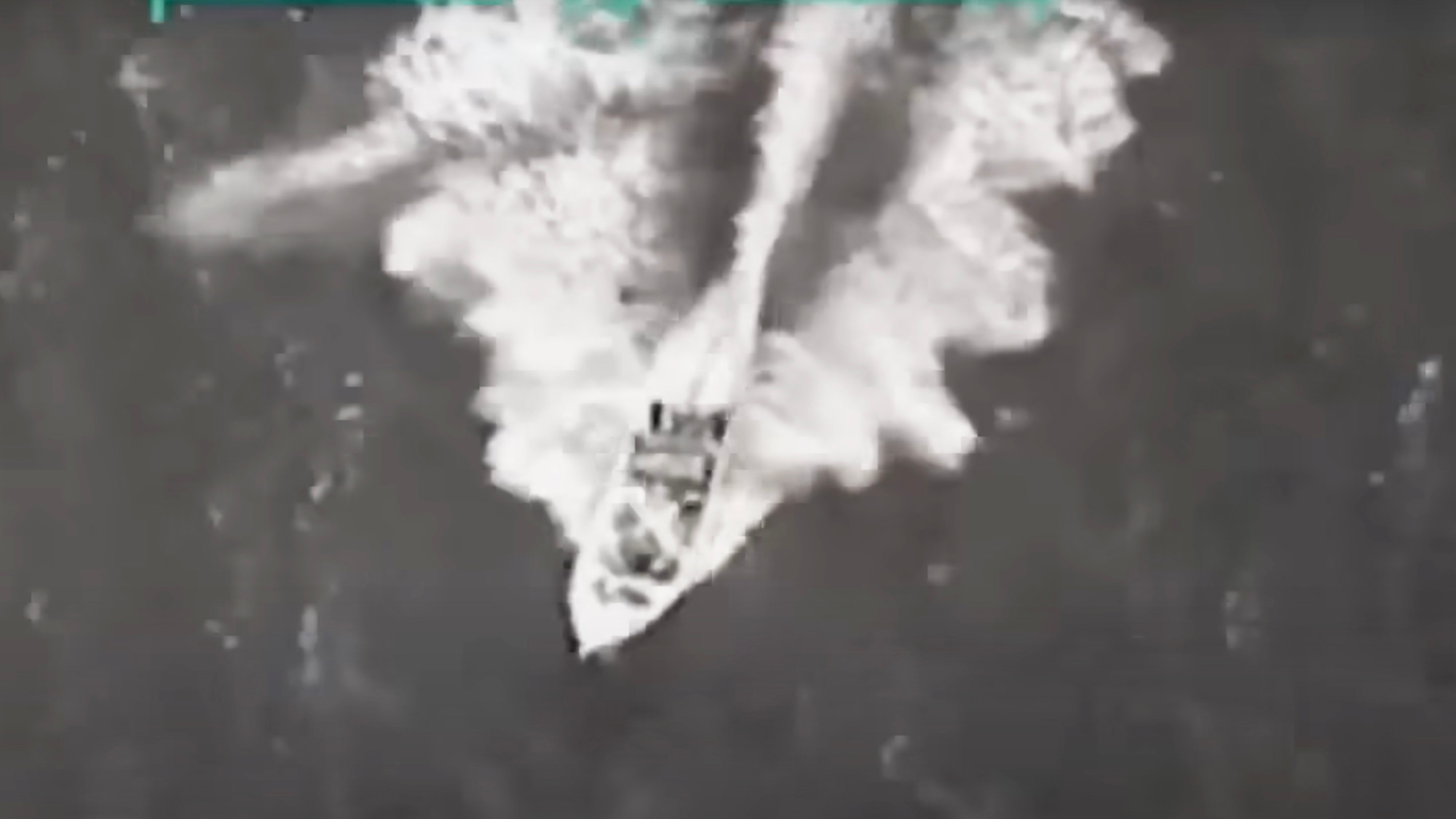Venezuela: Was Trump’s air strike legal?
A Trump-ordered airstrike targeted a speedboat off the coast of Venezuela, killing all 11 passengers on board

A free daily email with the biggest news stories of the day – and the best features from TheWeek.com
You are now subscribed
Your newsletter sign-up was successful
Donald Trump’s distaste for military adventures might be the only saving grace of his two chaotic presidencies, said Michael Fox in The Nation—or it used to be. This month, our “supposed ‘anti-war’ president” ordered an air strike on a small speedboat off the coast of Venezuela, destroying the vessel and killing all 11 passengers. Gleefully sharing footage of the strike, Trump insisted the target was a “drug-carrying boat” bound for U.S. shores, and that the occupants belonged to Tren de Aragua, the Venezuelan drug cartel he has designated a terrorist group. But given Trump’s track record of lying, “there is no reason to take these assertions at face value.” With eight U.S. warships and 2,200 Marines now stationed off the coast of Venezuela, the administration is vowing more attacks on drug vessels, and Trump might even be considering a military assault against the regime of President Nicolás Maduro. Trafficking drugs is a “serious crime,” said David French in The New York Times, but “we do not kill those suspected of being criminals from the air,” without any due process whatsoever. Trump is giving himself the unchecked authority to target people he calls “terrorists” with deadly military force; that means he has the power to kill anyone, anywhere—including in the U.S. With a vindictive, impulsive commander in chief, this prospect is “terrible to contemplate.”
Actually, the air strike was “a good move,” said The Wall Street Journal in an editorial. In ordinary circumstances, the Coast Guard interdicts drug boats and detains the crew for prosecution. But “Venezuelan capos don’t follow Marquess of Queensberry rules.” Tren de Aragua ruthlessly engages in “kidnapping, extortion, human trafficking, and murder,” and is now using those methods to shore up Maduro, a narco-terrorist who openly stole Venezuela’s last election. The U.S. can and should “depose Maduro” in “a surgical action,” not a protracted war, said Arturo McFields in The Hill. Doing so would free Venezuelans from tyranny, and signal to China, Russia, and Iran, Maduro’s allies, that stability in the Americas is “a priority for the U.S.”
If Trump really wants a war with Venezuela, said The Guardian in an editorial, the Constitution requires that he ask Congress to declare one. Trump lacks legal authority to order deadly strikes abroad on his own whim, however much blowing up boats gratifies his “love of macho spectacle.” Trump also loves “unilateral executive action,” said Andrew C. McCarthy in National Review. But without any court or Congress providing legal justification for these killings, members of the military and his administration could one day face prosecution for murder or war crimes. “So we’re left to ask: Where the hell is the Republican-led Congress?”
The Week
Escape your echo chamber. Get the facts behind the news, plus analysis from multiple perspectives.

Sign up for The Week's Free Newsletters
From our morning news briefing to a weekly Good News Newsletter, get the best of The Week delivered directly to your inbox.
From our morning news briefing to a weekly Good News Newsletter, get the best of The Week delivered directly to your inbox.
We’re not going to war with Venezuela, said Andres Oppenheimer in the Miami Herald. Trump’s long-standing squeamishness about “boots on the ground” seems genuine. The saber-rattling is “political theater” to embolden Maduro’s opponents, and to appease Florida’s Cuban and Venezuelan communities, who are rattled by Trump’s mass deportation program but loathe Maduro more. This display of deadly force is absolutely aimed at an American audience, said Will Bunch in The Philadelphia Inquirer. Like sending armed troops into U.S. cities, and having his “masked secret police” disappear people from the streets, the air strike was another message to the “restive American citizenry” that Trump’s “power, even over life and death, is now limitless.”
A free daily email with the biggest news stories of the day – and the best features from TheWeek.com